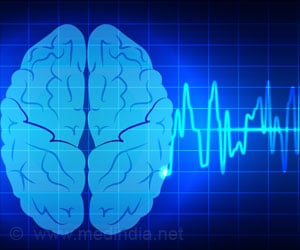
Omega-6 fatty acids could cut risk of bipolar disorder
Go to source). Bipolar disorder is a severe mood disorder characterized by recurrent episodes of mania and depression. While its exact cause remains unclear, previous research has indicated a strong hereditary component. The results of this study suggest a correlation between bipolar disorder and changes in metabolite levels, implying that circulating metabolites may play a significant role in the development of bipolar disorder and other psychiatric conditions.
‘Arachidonic acid, found in eggs and seafood, shows promise in bipolar disorder prevention. #MentalHealth #NutritionalResearch’
Tweet it Now
Insights into Bipolar Disorder: Genetic and Metabolic Perspectives
Lead investigator David Stacey, PhD, Australian Centre for Precision Health, University of South Australia; UniSA Clinical and Health Sciences; and South Australian Health and Medical Research Institute, Adelaide, Australia, explains, “Accumulating evidence indicates a role for metabolites in bipolar disorder and other psychiatric disorders. By identifying metabolites that play causal roles in bipolar disorder, we hoped to be able to highlight potential lifestyle or dietary interventions."By applying Mendelian randomization, a powerful causal inference method, the researchers identified 33 out of 913 metabolites studied present in the blood that were associated with bipolar disorder, most of them lipids.
Researchers also found that a bipolar disorder risk gene cluster (FADS1/2/3), which encodes enzymes associated with lipid metabolism, mediated the association between bipolar disorder and the levels of arachidonic acid and other metabolites.
Commenting on the findings, John Krystal, MD, Editor of Biological Psychiatry, says, "Arachidonic acid is typically a widely present omega-6 fatty acid in the body and brain that contributes to the health of cell membranes. This study provides a fascinating step forward in the effort to develop blood biomarkers of bipolar disorder risk, particularly in those patients with bipolar disorder and risk gene variations in the FADS1/2/3 gene cluster.”
Arachidonic Acid: A Key Player in Bipolar Disorder Pathways
Dr. Stacey notes, "Intriguingly, we observed a pattern whereby a genetic propensity to higher levels of lipids containing an arachidonic acid fatty acid side chain was associated with a lower risk of bipolar disorder, while the inverse was true of lipids containing a linoleic acid side chain. Since arachidonic acid is synthesized from linoleic acid in the liver, this suggests arachidonic acid synthesizing pathways are important for bipolar disorder."Advertisement
Dr. Stacey concludes, "To our knowledge, ours is the first study to highlight a potential causal role between arachidonic acid and bipolar disorder. Preclinical studies and randomized controlled trials will be necessary to determine the preventive or therapeutic value of arachidonic acid supplements, perhaps with a particular focus on people with a compromised arachidonic acid synthesizing pathway or with poor natural dietary sources. Our findings also support potential avenues for precision health interventions focused on early life nutrition to ensure that infants and children are receiving enough arachidonic acid and other polyunsaturated fatty acids to support optimal brain development, which may also reduce the risk of bipolar disorder."
Advertisement
- Omega-6 fatty acids could cut risk of bipolar disorder - (https://unisa.edu.au/media-centre/Releases/2024/omega-6-fatty-acids-could-cut-risk-of-bipolar-disorder/)















